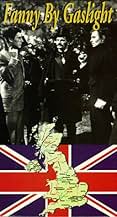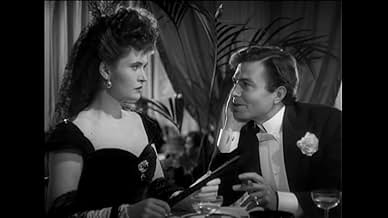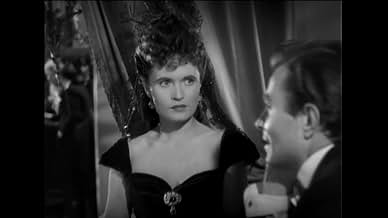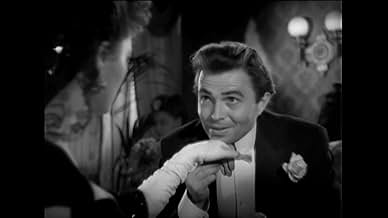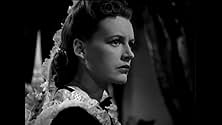Füge eine Handlung in deiner Sprache hinzuFanny's father dies in a fight. Her family runs a brothel. Her real father is a politician. She falls for his advisor Harry. Lord Manderstoke's interference causes conflicts between classes.... Alles lesenFanny's father dies in a fight. Her family runs a brothel. Her real father is a politician. She falls for his advisor Harry. Lord Manderstoke's interference causes conflicts between classes. Tragic events occur due to the Lord's schemes.Fanny's father dies in a fight. Her family runs a brothel. Her real father is a politician. She falls for his advisor Harry. Lord Manderstoke's interference causes conflicts between classes. Tragic events occur due to the Lord's schemes.
- Regie
- Drehbuch
- Hauptbesetzung
- Maid
- (Nicht genannt)
Empfohlene Bewertungen
The best works of Charles Dickens like David Copperfield, Nicholas Nickleby, and Great Expectations have the common thread of a young man of limited means making his way in the world who with a combination of hard work and good circumstances comes out on top at the end of the story. Fanny By Gaslight is just that kind of a story, except that Dickens would never have his protagonist be a woman. But Fanny Hooper as played by Phyllis Calvert is as good a Dickens hero as you will ever find.
When Calvert returns from boarding school her father, John Laurie, is killed in a fight ejecting a drunken James Mason from his establishment which is just this side of a brothel. When he dies she finds out that Laurie was not her real father, that she is the daughter of a prominent politician Stuart Lindsell. She's taken into his house as a maid. Calvert also makes the acquaintance of rising young politician Stewart Granger who is a protégé of Lindsell and Granger falls big time for Calvert.
Eventually all this becomes known about Calvert's background and it leads to an inevitable climax between Mason and Granger. How it gets to that point is the crux of the film.
Several incidents from the 19th century are used. The sex scandals are pieced from those involving Charles Dilke and Charles Parnell. Lindsell's suicide, jumping in front of a train is a recreation of the death of William Huskisson killed accidentally though by George Stephenson's newly invented locomotive.
Calvert and Granger are a winning pair of lovers and James Mason is one hateful aristocratic villain, a privileged man who lives to enjoy his privileges at the expense of others as Phillip Barry said.
I was surprised at how well Fanny By Gaslight holds up today. In fact the Hays Office had it banned from the USA for a while. Maybe that's its secret.
This film is a lovely story...very much like an old fashioned love story. This is NOT meant as an insult...such stories can be very satisfying if well written and the characters enjoyable...which they definitely are here.
The story is saved by philandering gentleman James Mason (Lord Manderstoke) who makes his entrance in the film with a wonderful delivery of the line "Get out of my way". Unfortunately, we don't get enough of Mason. Other cast members are good but Calvert and rising political star Stewart Granger (Harry) are pretty lucklustre with other characters outshining them. There are some good scenes and the film builds towards an inevitable showdown between Mason and Granger but it never really breaks into stride. It's a bit boring and has an unsatisfying predictability.
The script is full of Dickensian touches, notably in respect of class differences, and the pace is well controlled throughout.
I find beautiful Phyllis Calvert to have one of of her better parts in this film. Versatile James Mason unfortunately has only a small part but it is a memorable one. The scene of the duel challenge with Stewart Granger is one of the best of any British movie I have watched, and I have watched many because I am a fan of the British cinema, especially the 1935-1970 period.
Finally, the exceedingly beautiful B&W photography, exquisite beyond words.
Anyone who enjoys Dickensian drama MUST see FANNY BY GASLIGHT. 8/10
Adapted from a hit novel of the day, its story, set in late 19th century London revolves around young Fanny, Phyllis Calvert, in another of her do-gooder period-roles, who we first see as a child and who it's fair to say, enjoys an unconventional childhood. Not only do her parents unbeknownst to her run a brothel for high-society gents, but she loses both her father and mother in a short period of time, the former at the hands of James Mason's truculent Lord Manderstroke. Years later, now a young adult, she learns her true parentage and is reunited happily with the prosperous Cabinet minister who obviously had a fling with her mother and fathered her, only for her jealous stepmother to force him to self-destruction under threat of exposing his illegitimate daughter to the public gaze.
Fanny's eventful young life surely is one of snakes and ladders on a grand scale and this really is that big one on the board at square 99 taking you all the way back down again as she is turned out onto the street and struggles to find any kind of work, before ending up helping out at a low-end public house run by her old, now retired family manservant who goes by the wonderful name of Chunks. However, there is a ladder ahead for our Fanny in the form of her real dad's dashing and handsome private male secretary, played with brio by Stewart Granger, himself destined for high office, who she first met and innocently beguiled at her father's estate. Despite the opposition of his super-snobbish mother and sister about her low and scandalous beginnings, he pursues her ardently as a happy ending again comes into view for her. That is, until they encounter in Paris the dastardly Manderstroke again...
One can easily imagine the page-turning potboiler on which it was based and director Anthony Asquith pretty much applies the same technique on the screen. There's even some social commentary on class differences with Granger's Harry Somersford even predicting that one day there will be no class system years from now, but don't go thinking that this feature is some extended Marxist tract, it's just an unpretentiously entertaining rags-to-riches-to-rags-to-riches story of Fanny down our alley.
I enjoyed Calvert's bright-eyed performance as the plucky title-character and Granger and Mason too in their already typecast roles as handsome gallant and pantomime villain respectively. Like I said, the film packs a lot into its 102 minutes and while you'd never mistake it for "War and Peace" , I found it to be a pleasant, undemanding piece of escapism, aimed very much at its captive working-class audience of the day.
Wusstest du schon
- WissenswertesThe film was originally banned in the USA because it transgressed the Hays Purity Code.
- Zitate
Clive Seymour: Fanny. I don't know how to begin to tell you this. I promised your mother. William Hopwood was not your father.
- Crazy CreditsOpening credits prologue: LONDON
1870
- VerbindungenFeatured in The Ultimate Film (2004)
Top-Auswahl
- How long is Man of Evil?Powered by Alexa
Details
- Laufzeit1 Stunde 42 Minuten
- Farbe
- Seitenverhältnis
- 1.33 : 1
Zu dieser Seite beitragen


